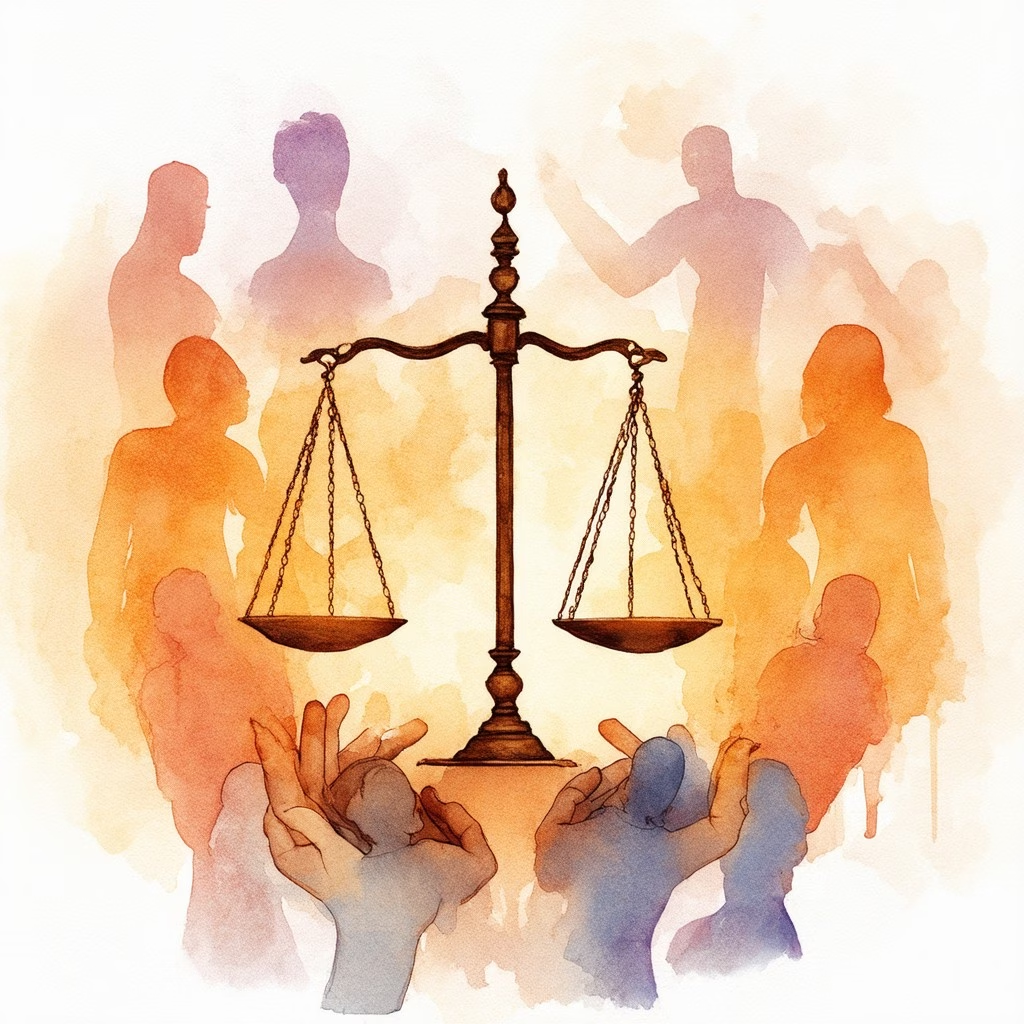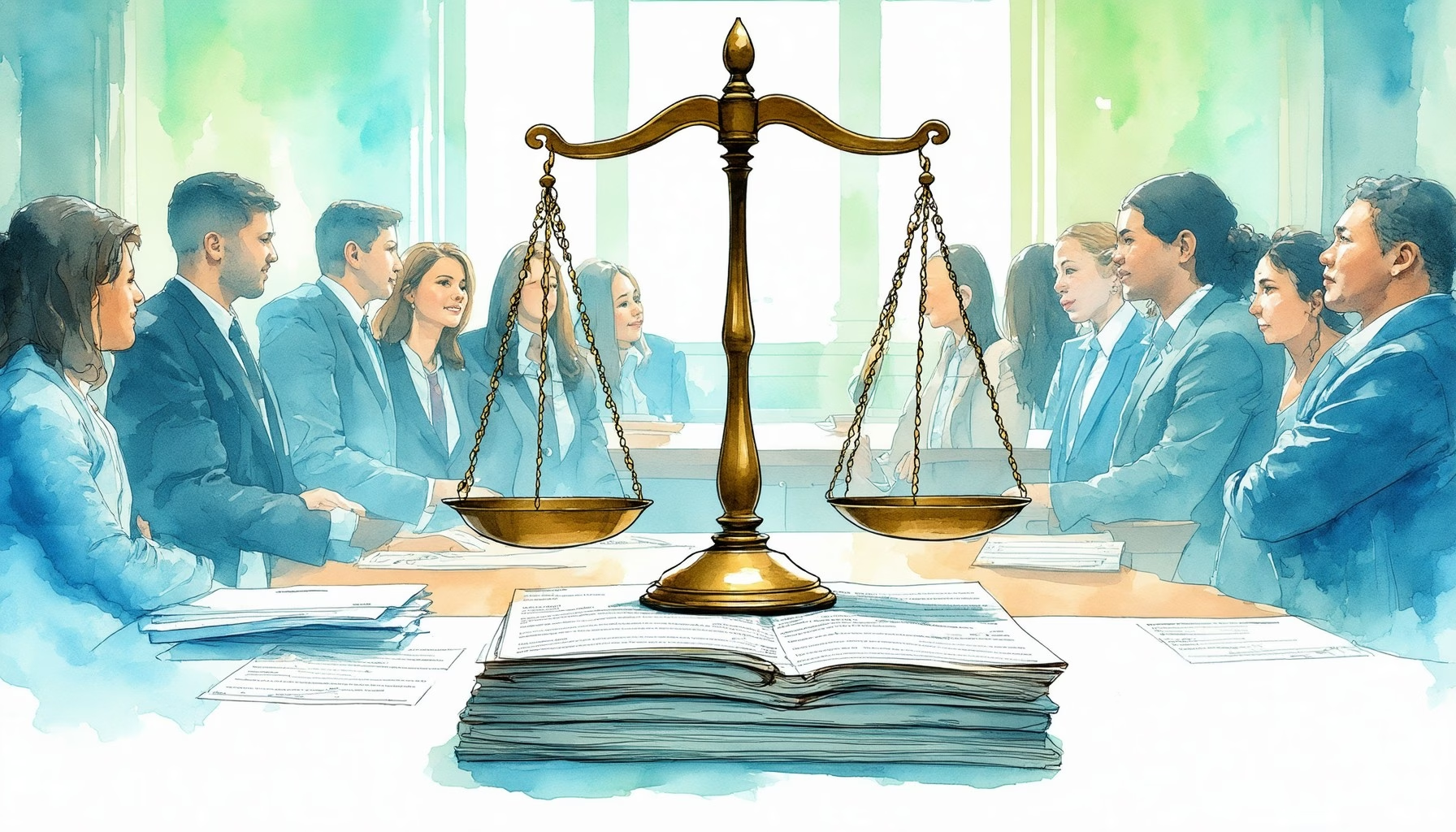Key Takeaways
- Free Legal Aid Access: Legal aid provides essential support for low-income families, ensuring access to legal representation at little to no cost.
- Eligibility Criteria: Income limits determine eligibility for legal aid services, typically aligned with federal poverty guidelines.
- Types of Legal Issues Covered: Legal aid assists with family law, housing disputes, employment rights, and public benefits, addressing critical needs for vulnerable populations.
- Pro Bono Services: Many attorneys offer pro bono work, providing free legal assistance for cases in the public interest.
- Resources for Assistance: Utilize local legal aid organizations, online legal hotlines, and community resources to find the legal help you need.
Navigating the complexities of the legal system can be daunting, especially for low-income families seeking justice. In this essential guide on how to get legal aid for court, we will explore the various avenues available for obtaining legal assistance free of charge. Understanding the costs associated with legal aid, the income limits that determine eligibility, and the differences between legal aid and private lawyers are crucial for those who find themselves in need of support. We will also delve into specific services offered by organizations like Maryland Legal Aid, and provide insights on how to access free legal advice hotlines available 24/7. Whether you are searching for free divorce lawyers for low-income families or need guidance on how to qualify for legal aid, this article will serve as a comprehensive resource to help you understand your options and empower you to take the necessary steps toward securing the legal representation you deserve.
How much does legal aid cost?
Understanding the Costs of Legal Aid
Legal aid services are designed to provide essential legal assistance to individuals who cannot afford to hire a private attorney. The cost of legal aid is typically free or very low-cost, as these services are funded by government grants, donations, and other sources. Legal aid is generally available to low-income individuals and families, with eligibility criteria varying by state and organization. Typically, applicants must demonstrate financial need, which is assessed based on income levels and household size.
Factors Influencing Legal Aid Costs
Several factors can influence the costs associated with legal aid services:
- Eligibility: Legal aid organizations assess applicants’ financial situations to determine eligibility. Those who qualify often receive services at no cost or a nominal fee.
- Types of Services Offered: Legal aid organizations provide a range of services, including assistance with family law (such as divorce and child custody), housing issues (like eviction and landlord disputes), public benefits, immigration matters, and more.
- Accessing Legal Aid: To access legal aid, individuals can contact local legal aid offices directly or visit websites like LawHelp.org, which can guide users to appropriate resources based on their location and legal needs.
- Pro Bono Services: In some cases, individuals may also qualify for pro bono services, where attorneys volunteer their time to assist those in need. Websites like the American Bar Association provide directories of pro bono programs.
- Government Resources: For more information on legal aid and resources available, individuals can refer to government websites that outline legal assistance programs, such as the Legal Services Corporation, which funds legal aid organizations across the United States.
By utilizing these resources, individuals can find the legal support they need without incurring significant costs.

How much does legal aid cost?
Understanding the costs associated with legal aid is crucial for individuals seeking assistance. Legal aid services are designed to provide support to those who cannot afford private legal representation, but there are still factors that can influence the costs involved.
Understanding the Costs of Legal Aid
Legal aid is often provided at little to no cost for eligible individuals. Many legal aid organizations operate on a sliding scale based on income, meaning that those with lower incomes may receive services for free, while those with slightly higher incomes may pay a nominal fee. It’s important to note that legal aid services are primarily funded by government grants and donations, which helps keep costs low for clients.
Factors Influencing Legal Aid Costs
Several factors can influence the costs associated with legal aid:
- Income Level: As mentioned, eligibility for free legal services often depends on income thresholds, typically aligned with the Federal Poverty Guidelines.
- Type of Legal Issue: The complexity of the legal matter can also affect costs. Some cases may require more resources and time, leading to potential fees.
- Location: Legal aid organizations vary by state and region, and their funding levels can impact the availability and cost of services.
- Additional Services: Some legal aid organizations may offer supplementary services, such as counseling or mediation, which could incur additional costs.
For more detailed information on how to get legal aid and the associated costs, you can visit Gov Guider.
What is it called when you can’t afford a lawyer?
When you can’t afford a lawyer, several terms and resources come into play. The most common term used is indigent, which refers to individuals who lack sufficient financial resources to hire legal representation. Indigency is often assessed based on income and asset criteria. In criminal cases, if you cannot afford a private attorney, the court will appoint a public defender. Public defenders are licensed attorneys employed by the government to provide legal representation to those who qualify based on financial need.
Another option is legal aid, which refers to organizations that offer free or low-cost legal assistance to individuals who meet specific income guidelines. These services typically cover civil matters, such as housing disputes, family law, and consumer issues. For example, the Legal Services Corporation (LSC) is a national organization that funds legal aid programs across the U.S.
Additionally, many attorneys offer pro bono services, meaning they provide legal assistance at no charge to individuals who cannot afford to pay. This is often done for cases that serve the public interest. Numerous nonprofit organizations provide legal help to low-income individuals, focusing on specific issues such as domestic violence, immigration, or disability rights. Websites like LawHelp.org can help you find local legal aid resources.
Exploring Options When You Can’t Afford a Lawyer
If you find yourself in a situation where you need legal assistance but lack the funds to hire a lawyer, there are several options available:
- Legal Aid Organizations: These organizations provide free or low-cost legal services to eligible individuals. They often focus on specific areas of law, such as family law, housing, and consumer rights. You can find local legal aid organizations through resources like Legal Services Corporation.
- Public Defenders: If you are facing criminal charges and cannot afford a lawyer, you have the right to a public defender. They are appointed by the court and provide legal representation at no cost.
- Pro Bono Services: Many private attorneys offer pro bono work, providing legal services for free to those in need. You can inquire about pro bono services through local bar associations or legal aid organizations.
- Legal Hotlines: Some states offer legal hotlines where you can receive free legal advice over the phone. These hotlines can help you understand your rights and options.
Understanding Legal Assistance Free Services
Legal assistance free services are designed to help individuals who cannot afford legal representation. These services include:
- Free Civil Lawyer Consultation: Many legal aid organizations offer free consultations to assess your case and determine if you qualify for assistance.
- Free Family Lawyers: If you are dealing with family law issues, such as divorce or custody, you can find free family lawyers through legal aid organizations or local bar associations.
- Low-Income Legal Aid: Programs specifically tailored for low-income individuals provide access to legal services without the burden of fees.
For more information on how to get legal aid, visit Gov Guider’s guide on free legal help.
What Does Maryland Legal Aid Help With?
Maryland Legal Aid provides essential legal services to support the state’s low-income residents. Their comprehensive offerings include:
- Legal Representation: Maryland Legal Aid offers statewide legal representation in various civil matters, ensuring that individuals facing legal challenges have access to qualified attorneys.
- Foreclosure Prevention: They assist homeowners at risk of foreclosure by providing legal advice and representation to help negotiate with lenders and explore alternatives to foreclosure.
- Eviction Prevention: Legal Aid helps tenants facing eviction by offering legal counsel and representation in housing court, aiming to prevent unlawful evictions and secure stable housing.
- Workforce Legal Services: They provide support for employment-related issues, including wrongful termination, wage disputes, and discrimination claims, helping individuals navigate their rights in the workplace.
- Family Law Services: Maryland Legal Aid also addresses family law issues, including child custody, divorce, and domestic violence cases, ensuring that vulnerable populations receive the necessary legal support.
- Public Benefits: They assist clients in accessing public benefits such as food assistance, healthcare, and disability benefits, advocating for their rights to essential services.
For more information on the services provided by Maryland Legal Aid, you can visit their official website or consult the People’s Law Library, which offers additional resources and guidance on legal issues in Maryland.
How Legal Aid Can Assist with Family Law Issues
Family law issues can be particularly challenging, especially for low-income families. Legal Aid provides critical support in various family law matters, including:
- Child Custody and Support: Legal Aid lawyers help parents navigate custody arrangements and child support calculations, ensuring that the best interests of the child are prioritized.
- Divorce Proceedings: For those seeking a divorce, Maryland Legal Aid offers assistance in filing for divorce, negotiating settlements, and understanding legal rights.
- Domestic Violence Cases: Legal Aid provides support for individuals facing domestic violence, helping them obtain protective orders and navigate the legal system safely.
- Adoption and Guardianship: They assist families in understanding the legal processes involved in adoption and guardianship, ensuring that all legal requirements are met.
Accessing these services can significantly impact the lives of those in need. If you are looking for free family law advice or need help with family-related legal issues, Maryland Legal Aid is a valuable resource.

What is the difference between legal aid and lawyer?
Understanding the distinction between legal aid and private lawyers is essential for individuals seeking legal assistance. Legal aid refers to free or low-cost legal services provided to those who cannot afford a private attorney, particularly in civil matters. This service is vital for ensuring that low-income individuals and families have access to justice. Legal aid organizations typically assist with issues such as housing, family law, and public benefits, helping to bridge the gap for those in need.
Legal Aid vs. Private Lawyers: Key Differences
- Definition of Legal Aid: Legal aid provides free or low-cost legal assistance, ensuring that individuals facing financial hardships can still access legal representation. This is particularly important in civil cases, where the right to counsel is not guaranteed.
- Types of Services Offered: Legal aid services include legal advice, representation in court, assistance with legal paperwork, and education on legal rights. In contrast, private lawyers offer a broader range of services, including representation in both civil and criminal cases.
- Funding and Availability: Legal aid organizations are funded through government grants and donations, which can limit their resources and availability. Private lawyers charge fees based on their services, which can vary widely.
- Importance of Legal Aid: Legal aid promotes equality in the legal system, as studies show that individuals receiving legal assistance are more likely to achieve favorable outcomes in their cases.
When to Seek Legal Aid vs. Hiring a Lawyer
Deciding whether to seek legal aid or hire a private lawyer depends on your financial situation and the complexity of your legal issue. If you are part of a low-income household and cannot afford a lawyer, exploring how to get free legal help is crucial. Legal aid can provide the necessary support for family law issues, housing disputes, and other civil matters.
However, if your case involves complex legal issues or requires specialized knowledge, hiring a private lawyer may be beneficial. In such cases, consider consulting resources like the American Bar Association for guidance on finding qualified attorneys.
How to Get a Free Lawyer for Family Court
Obtaining a free lawyer for family court can be a crucial step for individuals facing legal challenges, especially for those with limited financial resources. Understanding the process can help you navigate the complexities of family law effectively.
Steps to Obtain a Free Lawyer for Family Court
To secure a free lawyer for family court, follow these essential steps:
- Assess Your Eligibility: Determine if you qualify for legal aid based on your income and the nature of your case. Many legal aid organizations have specific income limits that you must meet.
- Research Local Legal Aid Organizations: Look for local legal aid services that provide free lawyers for low-income families. Websites like the Legal Services Corporation can help you find resources in your area.
- Contact Family Law Clinics: Many law schools offer family law clinics where law students provide free legal assistance under the supervision of licensed attorneys. This can be a valuable resource.
- Apply for Legal Aid: Complete the application process for legal aid services. Be prepared to provide documentation of your financial situation and details about your case.
- Utilize Online Resources: Websites like Nolo offer free legal advice and resources that can guide you through the process of finding a lawyer.
Resources for Finding Free Family Lawyers
There are numerous resources available to help you find free family lawyers:
- Legal Aid Societies: These organizations provide free legal services to those who qualify. Search for your local legal aid society to see what services they offer.
- Pro Bono Programs: Many law firms have pro bono programs where attorneys volunteer their time to help those in need. Check with local bar associations for listings of pro bono opportunities.
- Online Legal Services: Websites like Gov Guider provide comprehensive guides on accessing free legal help.
- Community Resources: Local community centers and non-profit organizations often have information on legal assistance programs available in your area.
What does legal aid help with
Legal aid provides essential support to individuals who cannot afford legal representation. It encompasses a wide range of services aimed at ensuring access to justice for low-income families. Legal aid can assist with various legal issues, including:
- Family Law: Legal aid helps with divorce proceedings, child custody disputes, and domestic violence cases. Free family lawyers are available to guide clients through these complex matters.
- Housing Issues: Legal aid services can assist with eviction proceedings, landlord-tenant disputes, and securing safe housing conditions.
- Employment Rights: Individuals facing wrongful termination, discrimination, or wage disputes can receive legal assistance to protect their rights.
- Public Benefits: Legal aid helps clients navigate the application processes for government benefits, ensuring they receive the support they are entitled to.
- Consumer Protection: Legal aid can assist with issues related to debt collection, bankruptcy, and unfair business practices.
For more detailed information on the specific areas where legal aid provides assistance, you can visit legal aid resources.
Comprehensive Overview of Legal Aid Services
Legal aid services are designed to address the legal needs of low-income individuals and families. These services typically include:
- Free Legal Consultations: Many legal aid organizations offer free civil lawyer consultations to assess cases and provide initial legal advice.
- Representation in Court: Legal aid lawyers represent clients in various legal proceedings, ensuring their rights are protected throughout the process.
- Educational Resources: Legal aid organizations often provide resources and workshops to educate clients about their legal rights and responsibilities.
- Pro Bono Services: Some private attorneys volunteer their time to offer free legal assistance to those in need, expanding the reach of legal aid services.
To learn more about how legal aid can assist you, consider exploring how to get free legal help.
Specific Areas Where Legal Aid Provides Assistance
Legal aid focuses on several critical areas to support low-income individuals effectively:
- Family Law: Assistance with divorce, custody, and domestic violence cases.
- Housing Law: Help with evictions, housing discrimination, and tenant rights.
- Public Benefits: Guidance on applying for food stamps, Medicaid, and other essential services.
- Consumer Law: Support with debt issues, bankruptcy, and consumer fraud.
For those seeking legal assistance, understanding these areas can help in determining eligibility and the type of support available. More information can be found at Legal Services Corporation.




